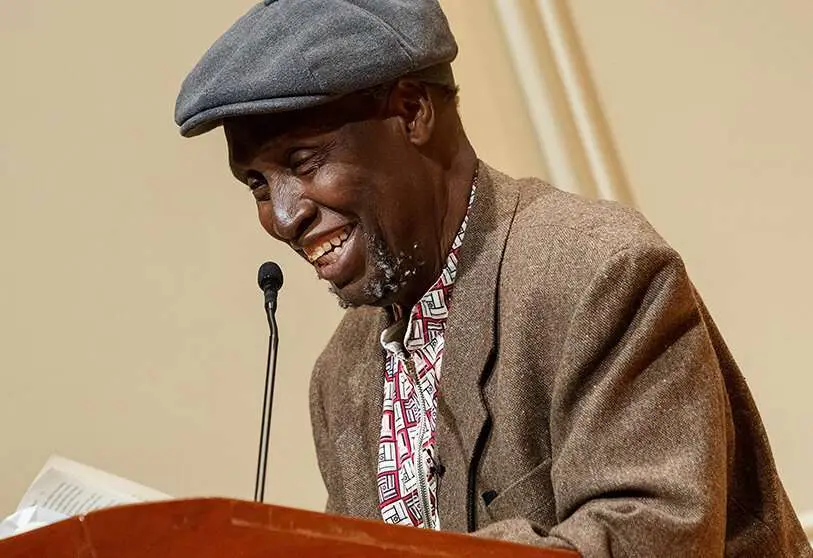Decolonising the mind

This is another important book by the outstanding and influential Kenyan writer, novelist, essayist, short-story writer and playwright Ngũgĩ wa Thiong'o. He is one of the most influential African writers and intellectuals in the world, and because of the importance of his literary work he has been nominated several times for the Nobel Prize for Literature. Professor of Literature at the universities of Nairobi (Kenya), Makerere (Uganda), Leeds (England) and California (USA) among others. Author of several novels, essays, short stories and plays, but only four of his novels have been translated into Spanish: " A Grain of Wheat", "Matigari", "The Devil of the Cross" and "The Witch of the Raven". Among them, "A Grain of Wheat" and "The Devil on the Cross" are among the 100 best African literary works.
This book "Decolonising the Mind" has become an important treatise on linguistics in African literature, because it examines with rigour and depth the importance of writing in African languages. In its 190 pages, it condenses profound and rigorous scholarly analyses of the role of language in the construction of a country's identity, history, culture and social structures.
In this book, as in "Displacing the centre", he sets out how the struggles for cultural freedoms in the world must develop in order to break down mental boundaries and displace the current centres of hegemonic powers in order to break down and redistribute the cultural hegemonies of languages.
He explains that, for the last four centuries, the world's cultures have been dominated by a set of Western states (Europe and the United States) which, in their arrogance of believing themselves superior to the rest of the world, believe themselves to be the centre of the universe and consider themselves entitled to impose their cultures and worldviews on the rest of humanity.
Therefore, from their control of the centre of economic, political and cultural power, they have deployed a devastating domain of annihilation and repression of the rest of the cultures and, of course, one of the main victims of these annihilations are the African cultures.
In his view, this is the importance of shifting that centre in order to liberate African cultures and those of the rest of the world from the cultural alienations of Europeans and Americans. In this book, he says: "Over the years I have come to realise that work of any kind, including creative literary work, is not the result of individual genius, but the effect of a collective effort".
He argues that "there are many stimuli behind the effective creation of an image, an idea, a plot line, even a formal structure", and concludes, "the very words we use are the product of a collective history".
The writer, who stopped writing in English and now writes in his native Kikuyu language, argues that "Swahili should be the national and official language of the whole of Kenya, the other national languages should be taught in schools, and English should be considered the priority language of international communications for the Kenyan people".
Kenya was a British colony that gained independence in 1963, and its universities have for decades been centres of ongoing academic debate on the importance of Kenyan writers translating their literary creations into their native languages.
The content of this book is part of these wide-ranging and long-running debates on the importance of language in the development of peoples and the significance for Africans of African writers writing in their native languages. For Thiong'o, this translates into a valuable contribution to the decolonisation of the minds of Africans and the recovery of the values of the cultural richness of African peoples. He points out that Europe and the United States still have part of the control over Africa's economy, politics and cultures. Hence the importance of the struggles of African peoples to free their economies, their politics and their cultures from the clutches of this European and American stranglehold. For Thiong'o, imperialism and its political and commercial allies will never be able to develop Africa. He bases his thesis on the fact that since the 18th century Europe has been plundering Africa, firstly, with the riches of natural resources, secondly, by stealing the incalculable works of art, and thirdly, by seizing the knowledge of their minds to enrich their languages and cultures.
@J15mosquera

